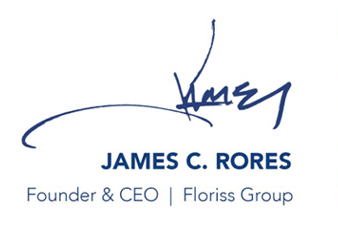Mindset drives performance. Ever hear the phrase, “past performance is no guarantee of future results?” It’s more than a legal disclaimer, it’s a reality that should be stamped on every resume you read and training program you buy. Especially if you’re building a world-class sales team.
Mindset means more to a salesperson’s success than being ambitious, driven, and committed. It means more than being money-motivated, goal-oriented, and organized. It means more than being well groomed and well-spoken. And it means more than cultivating a professional public image and knowing how to properly hold a fork when you eat.
Mindset even means more than all the skills one can accumulate throughout their career. Having skills does not mean an employee will use those skills at the right time. When used, you can’t be sure those skills will be applied with the proper consistency, precision, and quality. And, if not aligned with the critical success factors of the role, those skills may ultimately have a negative impact on performance.
Skills and the timing, consistency, precision, quality, and alignment of their use depend exclusively upon one’s performance mindset (aka natural work style) and fit to the role.
As we consider the impact of mindset on a sales organization, we can see how nearly every people-based variable a sales leader manages will be subject to the performance mindset of their team members. From hiring, training, and coaching to motivation, accountability, and time management, your player’s mindset controls them all.
Unfortunately, the vast majority of sales leaders don’t have the resources to gain an advantage in understanding and leveraging mindset. Neither do their team members. When there is a lack of fit between an employee’s performance mindset and role, both employee and employer suffer the consequences.
Recognizing this truth, we set out to find a scientifically validated tool that could determine the performance mindset and natural work style of an employee or job candidate and then certify their fit for a unique sales role. What we found is called the Position Success Indicator (PSI) by Hire Direction.
As a sales leader, how do you significantly reduce the risks and costs of your hiring and training initiatives? Build a system that allows you to ‘make better people decisions’ today, and over time, so you can win more than you lose and win bigger and lose smaller over time.
The PSI uses 8 multiple choice questions to create 150 data points that define each team member’s performance mindset or natural work style. We then use that data to do three things:
- Establish each individual’s alignment to the team’s structure and goal
- Certify each team member’s fit to quantifiable role, manager, and top performer profiles
- Develop objective continuous improvement plans to improve player fit and performance.
As a sales leader, how do you significantly reduce the risks and costs of your hiring and training initiatives? Build a system that allows you to ‘make better people decisions’ today, and over time, so you can win more than you lose and win bigger and lose smaller over time.
We can help you get there. Grab time on my calendar and let’s talk.
Together,











